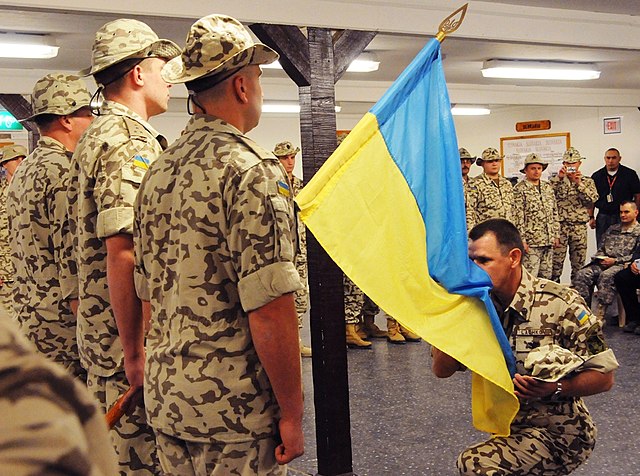Ukraine ramps up its offense

Carilyn Pointer - Ukraine moves to take offensive action in the war against Russia, citing that their troops are stronger than ever. The Russian invasion began a year and a half ago, and during the majority of that time Ukraine has predominately played a defensive role. Understanding what influenced the shift in their geopolitical codes, can shed light on future trends in the war and the impact Western aid has had in this conflict.
States and other geopolitical entities such as Russia and Ukraine are actors who interact on the world stage. Each actor tries to determine for themselves how they will interact with the rest of the world. The calculation of how to operate within the global neighborhood is referred to as a geopolitical code. Russia deciding to invade Ukraine, and Ukraine’s defensive response is an example of this. How countries make these calculations is based off several factors. These include considering current and potential allies and enemies. Ukraine’s new offensive tactic takes these into consideration. Moving to an offensive tactic can motivate and encourage current and potential allies to invest in their success and therefore continue providing aid. It also is a sign to their current enemy Russia, that they are a strong force and 18 months into the war are stronger than ever. This sequentially leads into how to best defend against enemies. As previously mentioned, Ukraine has primary played an defensive role in the war thus far. The move to an offensive position is based on better equipped and trained soldiers, longer-range Western artillery, and more efficient replenishment of ranks. All these factors have made Ukraine’s troops stronger and lead to the justification that taking an offensive position will recover the most amount of land for their effort.
Once an actor has decided how to best interact with other countries, they then must present and justify their actions to the global community. In this case, after playing the defensive position for so long, justifying their decision to be more aggressive, will likely take little effort. However, as many are now realizing, this may turn into a permanent state of conflict, which may make justifying their future actions more difficult.
Photo Credit: Rodney Foliente, U.S. Army, Public domain

